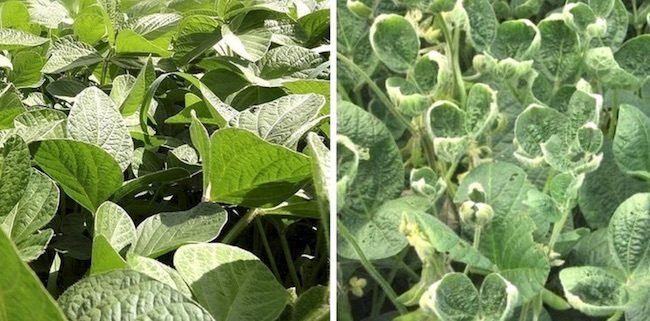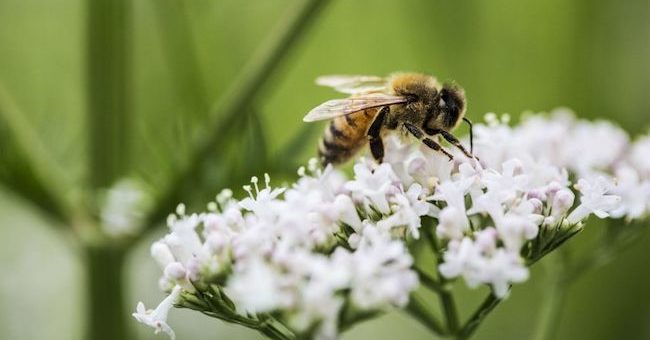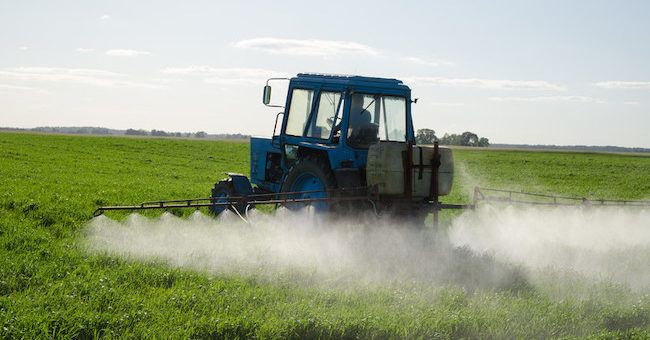The use of glyphosate is now banned in public parks and gardens, sports and recreation grounds, school and children’s playgrounds, as well as near health and educational facilities.
Read Article

The use of glyphosate is now banned in public parks and gardens, sports and recreation grounds, school and children’s playgrounds, as well as near health and educational facilities.
Read Article
The herbicide, used widely on crops including broccoli and onions, can cause low birth weight and impaired brain development, regulators said.
Read Article
The watchdog group said perchlorate was detected in measurable levels in two-thirds of nearly 200 samples.
Read Article
Many programs meant to help farmers address climate change are now owned by companies that sell chemicals, which could boost practices that depend on pesticides — rather than those that reduce their use.
Read Article
Just like food, personal care products are contaminated with heavy metals — even the organic ones.
Read Article
Republicans have repeatedly pushed a provision — drafted with Bayer’s help — that critics say would undo some nationwide pesticide protections.
Read Article
Avá-Guarani people in Brazil are battling severe health issues caused by glyphosate contamination from nearby soy and corn plantations, leading to an international human rights complaint against Bayer.
Read Article
The product was found to contain the synthetic herbicides diquat and glyphosate.
Read Article
With no new dicamba approved for the 2024 season, dicamba use on GE soybeans and cotton may well remain prohibited for the 2025 crop season as well.
Read Article
Getting farmers to switch to organic farming is hard. Could giving up pesticides while still being able to use synthetic fertilizers help them to make the transition?
Read Article
“The way the EPA assesses pesticide risk doesn’t reflect cutting-edge science and can’t account for all the ways the chemicals might affect people’s health, especially given that people are often exposed to multiple pesticides at a time,” said Consumer Reports senior scientist Michael Hansen, PhD.
Read Article
A recent study has been making the rounds on the internet lately blaming organic farms for an increase in nearby pesticide use — without explaining the nuance and not looking at the harm created by spraying toxic chemicals.
Read Article
A growing body of research links nitrate and pesticides to some types of cancer.
Read Article
While the country claims that it is doing this because an alternative has not been found yet, the real reason could be undue pressure from the U.S., who is fighting mightily against the ban.
Read Article
As the agrichemical giant lays groundwork to fend off Roundup litigation, its use of a playbook for building influence in farm state legislatures has the dangerous potential to benefit pesticide companies nationwide.
Read Article
A sweeping victory for family farmers and dozens of endangered plants and animals.
Read Article
Clinical trials have shown that gluten from wheat is not responsible for causing symptoms in healthy individuals, suggesting that something else — possibly glyphosate — is inducing symptoms.
Read Article
A win for healthy food shoppers and biodiversity.
Read Article
A trove of internal Syngenta documents exposed years of corporate efforts to cover up evidence that paraquat can cause Parkinson’s disease.
Read Article
A tiny victory amid a big loss.
Read Article
MUST-READ: The dark truths about the pesticide-fueled pineapple industry in Costa Rica, where the UK and U.S. get most of its stock.
Read Article
From the Environmental Working Group’s latest tests, at least one pesticide residue was detected in 22 of the 58 conventional baby foods, and no pesticides were detected in any of the 15 organic products.
Read Article
Among other measures, congressional lawmakers are considering multiple proposals that would reverse bans on spraying super-toxic pesticides within 200 feet of elementary schools.
Read Article